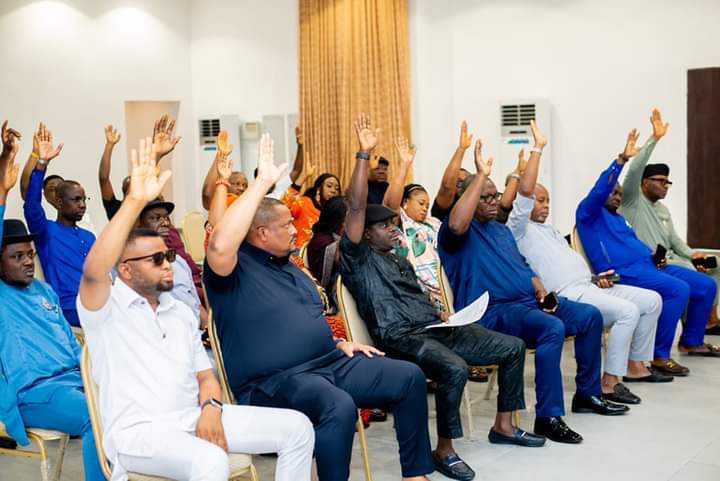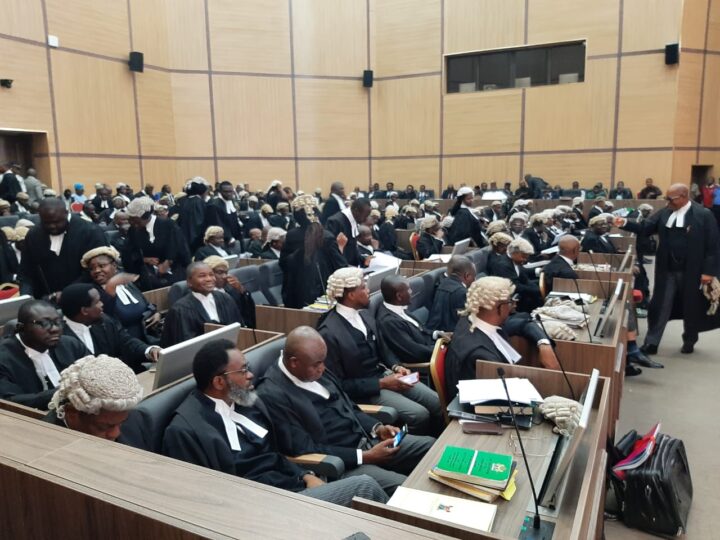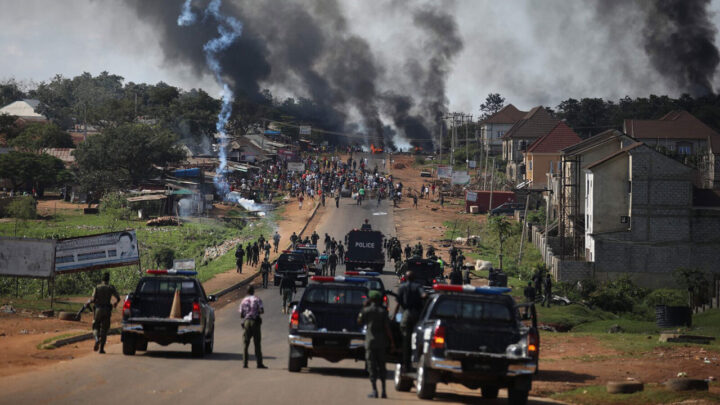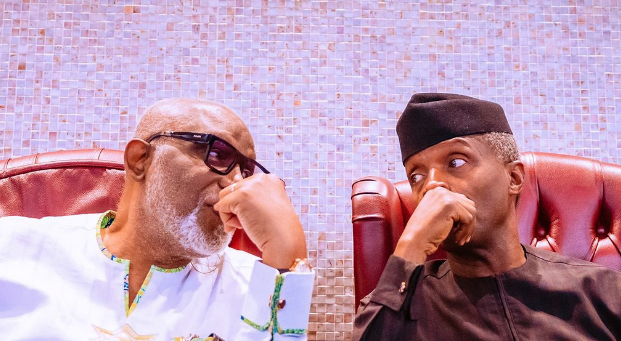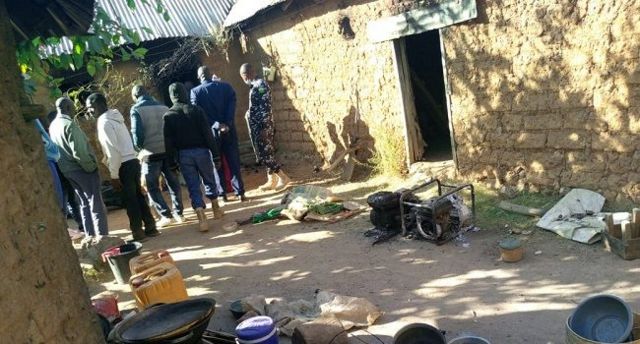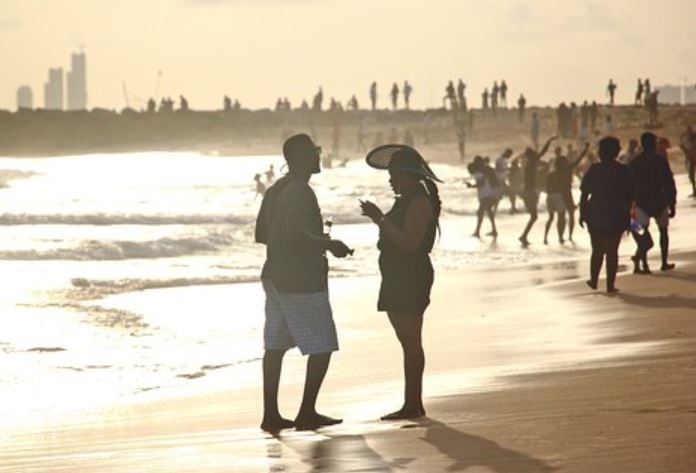File photo. The Martins Amaewhule faction of the Rivers house of assembly
From 27 Rivers lawmakers defecting in one day, to a court sacking 16 legislators in one fell swoop in Plateau, the state houses of assembly, like hot-air balloons bumping without anchors, endured a frenetic ride in 2023.
A few days after the general election, the Kogi assembly suspended nine of its members, including the majority leader, for “acts of terrorism and electoral violence”.
Like the other side of the same wall, Nasarawa assembly cracked open and the tussle for leadership led to the election of two speakers in parallel elections.
This review examines the controversies that dogged parliaments at the subnational level in 2023.
Advertisement
FIRE, DEMOLITION AND DEFECTION IN RIVERS ASSEMBLY
On December 11, 27 lawmakers left the Peoples Democratic Party (PDP) for the All Progressives Congress (APC).
The lawmakers were those who had pledged their loyalty to Nyesom Wike, immediate past governor of the state and minister of the federal capital territory (FCT).
Advertisement
The defection was the culmination of weeks of political sabre-rattling within the PDP in Rivers, after Wike fell out with Siminalayi Fubara, governor of the state.
The crisis stemmed from the quest for the control of the political structure of the state between the two gladiators.
The in-fighting also led to the burning of a section of the house of assembly complex on October 30, as the plot to impeach Fubara intensified.
The Rivers government would go on to demolish the house of assembly complex days later, while stating that the demolition was imperative for renovation purposes.
Advertisement
Plenaries at the Rivers assembly have been presided by two different speakers since June. Fubara presented his 2024 budget of ‘Renewed Hope’ to five members of the assembly who were loyal to him.
Fubara and Wike agreed to end the political turmoil between them following the intervention of President Bola Tinubu, but the brickbats between both men in the public space is yet to abate.
Among the resolutions reached at the meeting were that all matters instituted in courts should be “immediately” withdrawn, while the 27 lawmakers who defected to the APC should be taken back as members of the assembly, with Martin Amaewhule recognised as the authentic speaker.
UNPRECEDENTED REJECTION OF COMMISSIONER-NOMINEES IN LAGOS
Advertisement
In Lagos, the house of assembly declined to clear 17 of the 39 persons nominated as commissioners by Babajide Sanwo-Olu, governor of the state.
Some lawmakers said the “exclusion of party loyalists” by the governor was the reason for the rejection.
Advertisement
However, Mudashiru Obasa, the speaker of the assembly, said there was no basis for the house to fight the governor, adding that “we have constitutional rights to say yes or no to his nominees”.
Hours after the assembly’s refusal to clear the nominees, the Governor’s Advisory Council (GAC), the highest decision-making body of the All Progressives Congress (APC) in Lagos, met with Sanwo-Olu and Obasa in a bid to resolve the matter.
Advertisement
Thereafter, a revised list was sent to the house. The lawmakers still declined to clear two of the 18 commissioner-nominees.
Addressing the issue during the swearing-in ceremony of the new commissioners, the governor said the initial rejection of some of the recommended nominees was not a “call to arms”, but a testament to the independence of the legislature.
Advertisement
AKEREDOLU’S MEDICAL LEAVE CAUSES POLITICAL TENSION IN ONDO
In June, Rotimi Akeredolu, the late governor of Ondo, embarked on a medical leave to Germany for health reasons and Lucky Aiyedatiwa, his deputy, was supposed to take charge of affairs.
But things took a sharp turn when the governor returned from his leave.
Four days into his return from Germany, the governor sacked the media aides attached to the office of the deputy governor and almost immediately, the state house of assembly served Aiyedatiwa an impeachment notice for “gross misconduct and abuse of office” while the governor was away.
The deputy governor escaped by the skin of his teeth after the intervention of a federal high court, who gave an order stopping the impeachment process.
The assembly would go ahead to petition the National Judicial Council (NJC), stating that Emeka Nwite, the judge who gave the verdict, violated the provisions of the constitution while doing so.
The assembly also issued a directive to the state’s chief judge to “immediately” set up a seven-man panel to investigate Aiyedatiwa.
However, after the intervention from political allies, on November 30, the assembly withdrew the case against the deputy governor and in December, Akeredolu took another medical leave.
The Ondo assembly finally declared Aiyedatiwa acting governor on December 13.
COURT SACKS 16 PDP LAWMAKERS AS APC GAINED CONTROL OF PLATEAU ASSEMBLY
Delivering judgement in November, the court of appeal sitting in Abuja said the PDP structure in Plateau collapsed since 2020 and that the party cannot claim to have a structure to sponsor any candidate for an election.
Consequently, Abang Okon, the lead justice, ruled that all votes scored by PDP candidates in the March 2023 election were wasted and therefore a nullity.
As a result, PDP lost all its 16 seats in the house of assembly, with APC now occupying 22 of the total 24 seats.
Before this development, a fleeting crisis ensued when a high court in the state ordered that Abok Ayuba, the 37-year-old impeached speaker, be reinstated — 17 months after he was ousted.
The judgment was rejected by Yakubu Sanda, the new speaker. In April, the police had to send 15 security vehicles to seal off the assembly complex in a bid to maintain law and order.
NASARAWA ASSEMBLY SEALED OFF OVER ELECTION OF TWO SPEAKERS
Members-elect of the 7th Nasarawa assembly divided into two factions a few weeks after inauguration and began holding separate proceedings.
Two speakers were subsequently elected for the assembly.
Days after this brouhaha, the assembly held a fresh inauguration in which Daniel Ogazi, factional speaker of the assembly, “stepped down for peace to reign”.
Ibrahim Abdullahi, the immediate past speaker, was constitutionally recognised as the apex principal officer for a third term in office.
KOGI ASSEMBLY SUSPENDED NINE MEMBERS OVER ‘ACT OF TERRORISM’
Acting on two separate letters calling for the suspension of nine lawmakers, Matthew Kolawole, speaker of the house, suspended nine lawmakers including the majority leader.
The speaker described the conduct of the legislators during the March 2023 election as “very unfortunate and uncalled for”.
The affected lawmakers were Daniya Ranyi (Bassa), Suleiman Attajachi (Idah), Bello Hassan (Ajaokuta), Edoko Moses-Ododo (Ibaji) and Muktar Bajeh (Okehi).
Others were Abubakar Tanko (Kogi/Koto), Atabor Cosmas-Llemona (Igalamela/Odolu) Kilani Olusola-Olumo (Ijumu), and Mohammed Lawi-Ahmed (Okene 1).
By May, the assembly had a change of heart after the governor wrote another letter to the leadership of the legislature to demand the clearance of eight of the lawmakers, against the backdrop of a report from the Department of State Services (DSS).
Add a comment

